DONBAS, Ukraine—In the fading light of a late October day, Philippe, a soldier with the 68th Brigade, speeds down the road in a small pickup, trying to dodge drone strikes.
Beside him, Oleksander, 31, grips an assault rifle tightly, hanging on for dear life to one of the truck’s grab handles.
After crossing the remains of Porkovsk’s bridge, destroyed weeks earlier by Russian forces, the truck jolts along a dirt road flanked by fields of withered sunflowers.
In the distance, columns of smoke from nearby fighting rise into the sky. A few minutes later, they pull up at the edge of a forest, just a few kilometers from the Russian lines. “We’re here,” Oleksandr says with a grin.
Less than 10 meters away, hidden beneath camouflage nets, a dozen soldiers from the 68th Jaeger Brigade relax, laughing and chatting around an old Soviet cannon that was captured from Russian forces during the Kharkiv counteroffensive in 2022.
Taras, 30 and the unit's commander, turns his attention to the smoke in the distance. "That's Selydove burning," he explains. "If we lose this town, we might lose Porkovsk."
Russian forces have made significant progress in their Donbas offensive since the summer began, bringing their troops within 10 kilometers of Pokrovsk, a logistical hub for the Ukrainian army in the region. Selydove, located 16 kilometers east of Porkovsk, is the last line of defense protecting the area and is currently on the verge of being encircled by Russian forces.
After more than two years of assaults, the Russians captured the fortress town of Vuhledar, located southeast of Pokrovsk, in early October. Located about 50 kilometers southeast of Pokrovsk, it had been protecting the flanks of the Donetsk region.
Facing a critical situation, the Ukrainian high command called the men of the 68th Brigade, who had been fighting on the southern front, to this section of the front to halt the Russian advance.
A stabilized front, but for how long?
“We mostly do counter-battery fire,” says Taras, sporting a long black beard and referring to the military tactic of targeting and neutralizing the enemy’s artillery by tracking the source of their fire and responding with precise artillery strikes. “Depending on the day, we fire between 20 and 30 shells.”
He struggles to predict how long the Ukrainian army will manage to hold off the Russian advance. “All I can say is that the situation has been stable for the past few weeks,” Taras says. “We still have a chance to save Pokrovsk.”
The conversation is interrupted by a phone call. Taras answers curtly, then swiftly heads toward the artillery piece. “Positions!” he shouts. Within seconds, the soldiers ready the artillery in a perfectly synchronized dance. “Armata (armed)!” shouts one. “Ostril (fire)!” responds Taras.
One of the gunners hits the detonator, unleashing an explosion that rocks the earth. The old Soviet cannon erupts, momentarily swallowed by flames, as the air thickens with heat and smoke.
After the shot, they all dive into the trench. "We’re hiding from Russian counter-battery fire," explains Oleksandr, 30, one of the soldiers from the 68th Brigade. "We have to wait five minutes. If the Russians don’t respond within that time, it means they haven’t located us."
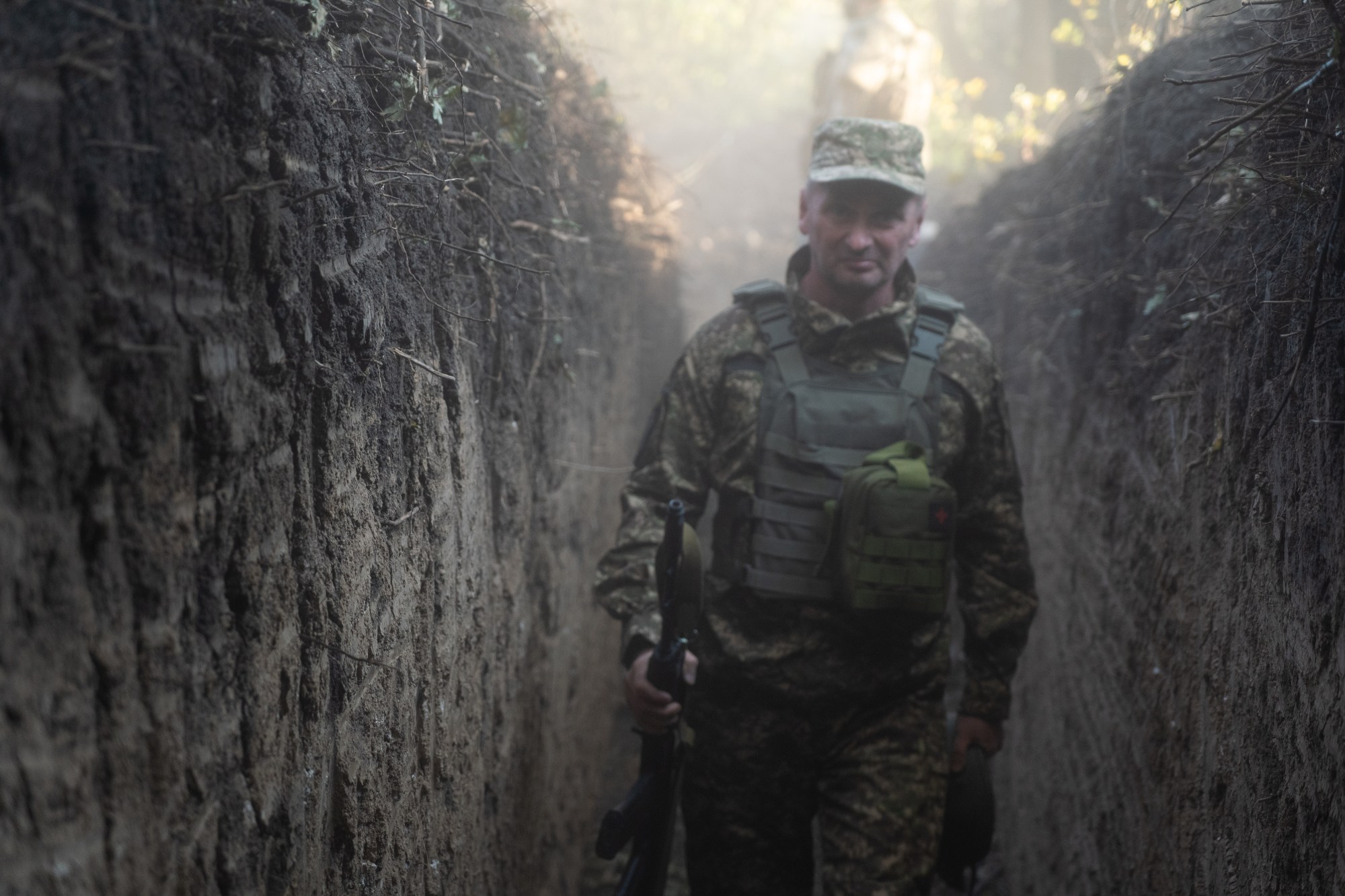
For the first minute, everyone remains silent. "It takes 50 seconds for a shell fired from the Russian side to reach its target." In the second minute, Taras lights a cigarette. Once the time passes, a soldier cracks a joke. Everyone bursts into laughter, and, brushing off the dust, they climb back to the surface. "The Russians won’t respond this time," Oleksandr says with a wink.
American elections.
The conversation soon shifts to the upcoming U.S. elections. The soldiers are very aware that in just a few weeks, Americans will choose between Kamala Harris, who, like President Joe Biden, wants to continue supporting Ukraine, and Donald Trump, who has blamed Ukrainian President Volodymyr Zelensky for the war and repeatedly said he would stop all aid to Kyiv unless it agreed to peace talks.
On October 11, U.S. House Speaker Mike Johnson, a Republican and strong Trump supporter, stated that he no longer has "an appetite for further Ukraine funding" and expressed hope that a potential November victory for Trump would lead to a swift end to the war.
While this aid seems crucial for Ukraine's defense, the soldiers of the 68th Brigade don’t seem overly concerned.
“I don’t really have time to follow the news,” says Philippe. "We’re too busy here, and our attention is on other things. We’re at our post all day, and in the evening, we’re too tired to care about politics. But I’ve heard it would be better for us if Kamala Harris wins."
Vitalii, a 50-year-old soldier attached to the 15th Brigade, takes more interest in American politics. "Of course, we want Kamala to win,” he says. “But we also know that foreign policy isn’t decided only by the president. Congress is involved too. So even if Trump is elected, we know American aid will have to go through Congress, and many Republicans understand that it’s crucial for the United States' credibility to support Ukraine."
Dmytro, a former lawyer from Zaporizhia, agrees with Vitalii and believes the U.S. elections won't decide everything. "There’s Congress and also the EU and the U.K., which provide more than half of the aid."
More importantly, Dmytro thinks the war is likely to drag on because Putin can't be satisfied with what he's taken. "Trump says he’ll stop the war in 24 hours, but Putin will keep attacking," he insists. "He wants to take the entire Donbas, which he’s struggling to do, and on our side, we can’t accept giving it up to Russia. Even if the U.S. stops sending us another cent tomorrow, we can hold the front line, and step by step, we’ll still inflict tens of thousands of losses on the Russians."
However, Dmytro admits that without U.S. aid, they wouldn’t be able to retake the lost territories. He hopes the EU will continue supporting Ukraine to the same extent. He adds, "Either way, with or without help, we’ll fight the Russians with stones and sticks if we have to."
Vitalii, from Uzhhorod near the Hungarian border, slyly comments that politicians in Ukraine and around the world have a habit of promising anything to their voters.
"Once they’re elected, they do whatever they want," he laughs.
But more seriously, Vitalii acknowledges that since the Republican-led blockade in Congress in 2023 and the shell crisis, when Ukraine faced severe shortages of 155mm shells and was outgunned by Russia, Ukrainians have shifted away from planning the war solely around American aid.
"The aid was essential at the beginning of the war. Thanks to HIMARS and Javelins, we pushed the Russians back. But that time has passed. Now what matters are the drones we produce, the shells provided by the European Union, and the quality of our soldiers. The rest, whether it’s F-16s or ATACMS, is welcome, but we can’t even strike deep into Russia anyway," he concludes with a bitter laugh.
Despite his words, Vitalii knows that the U.S. elections will be a crucial turning point in the war. Calmly leaning against a T-90 tank, Vitalii, who has been fighting since 2014, believes that negotiations will take place after the U.S. elections, regardless of the outcome. "We’ll see what comes of it. Maybe the war will end in six months. If not, we will keep on fighting."
Sufficient equipment to withstand the winter.
Like the 68th Brigade, the men of the 15th Brigade, positioned on the same part of the front, were also transferred a few weeks ago to block the Russian advance. Mikhaïl, 47, commands a tank unit. Originally from Lviv in western Ukraine, he believes that Kyiv will be able to hold the front for a few more months.
"It all depends on the Russian advance and our ability to stop them. If we hold Selydove until the rainy season, we can hold Pokrovsk through the winter."
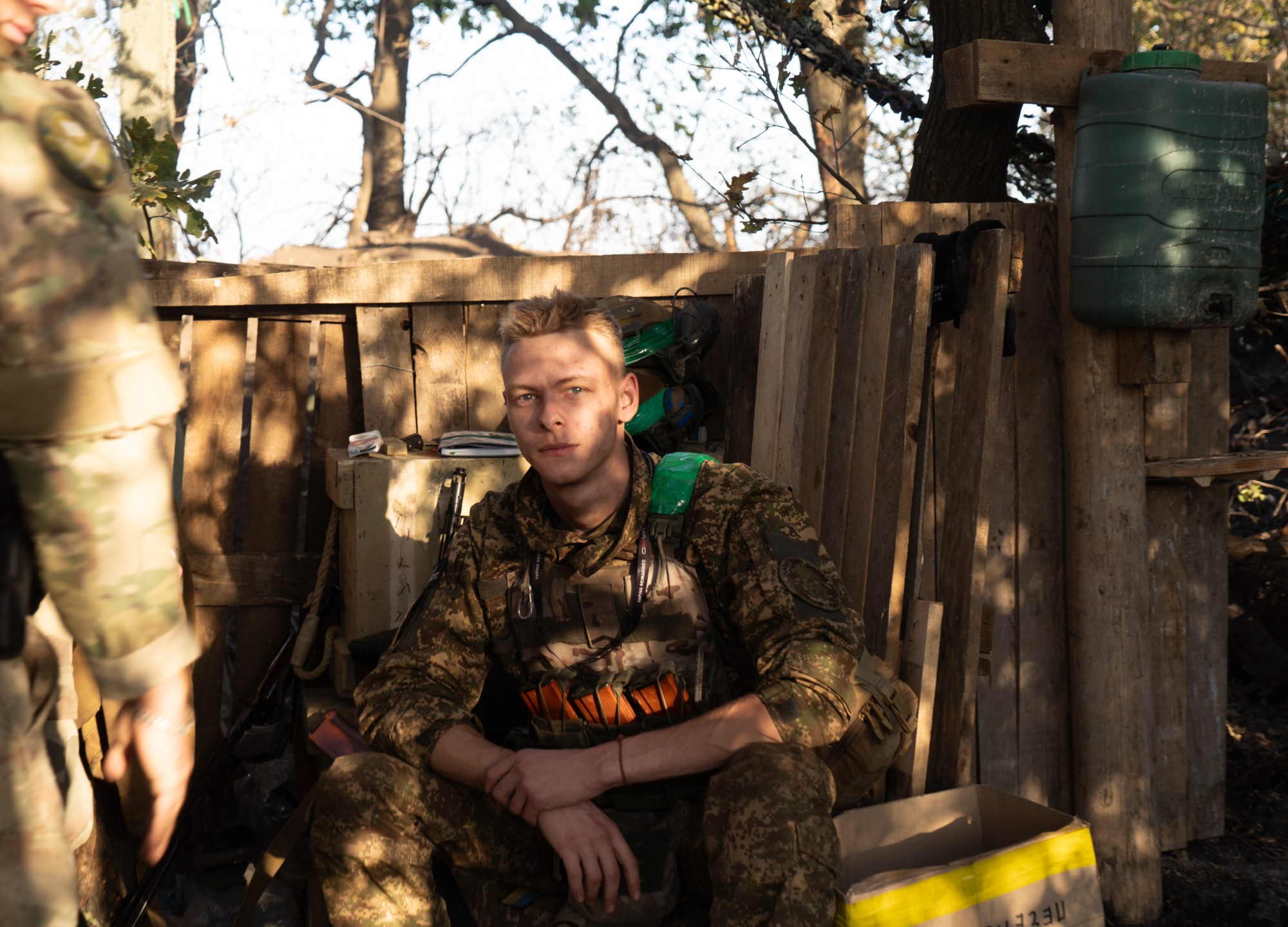
Known as the Rasputitsa, the rainy season—usually between mid-October and early November—dictates the pace of the war in Ukraine. Within days, a frontline can turn into a swamp, making the movement of essential vehicles nearly impossible for ongoing operations. One must then wait for the cracked mud to freeze at the start of winter to launch new offensives.
But Mikhaïl seems confident. He explains that their units are better prepared for winter this year and have much more ammunition than they did a few months ago. After facing acute ammunition shortages for most of 2023, Ukrainian forces have in recent months secured enough supplies to defend themselves. This improvement is largely thanks to the initiative of Czech President Petr Pavel, who managed to mobilize nearly a million shells from allies worldwide.
Still, if Russian forces have slowed their advance on Pokrovsk, Mikhaïl explains it’s mainly to level the front and expand their salient around the city. "They were too deep and were jeopardizing their supply line," he says.
Oleksandr of the 68th Brigade is well aware. "Every village leads to street fighting and significant losses for the Russians, so they try to bypass and suffocate them. It’s more effective for them that way," he says, referring to the Russian "cauldron" strategy. This military maneuver involves encircling and isolating enemy forces by penetrating deep into their lines, cutting off communication and supply routes, and then closing the pocket around them.
Oleksandr wants to believe the Ukrainian army can hold out. Despite the difficulties the soldiers have faced, he thinks they will be able to keep Pokrovsk.
Yet despite the optimistic talk, the return journey betrays the Russian advance. Every five to 10 kilometers along the road from Pokrovsk to Kramatorsk, passing through Dobropillia, massive excavators dig new trenches, and dragon’s teeth, stacked on large dump trucks, wait to be deployed.
With a worried look, Oleksandr gazes at the horizon. He knows it: The Russians are advancing.
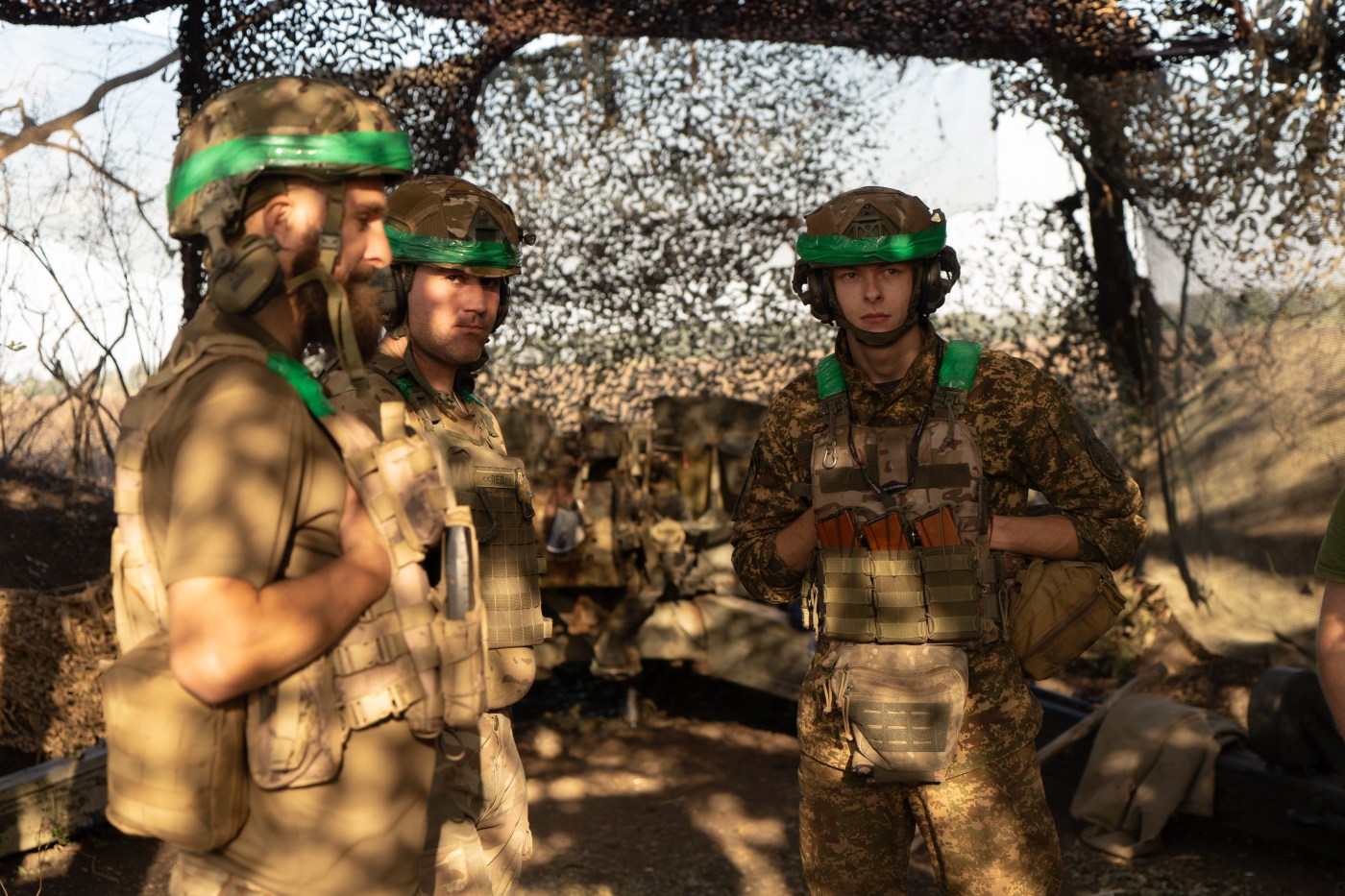
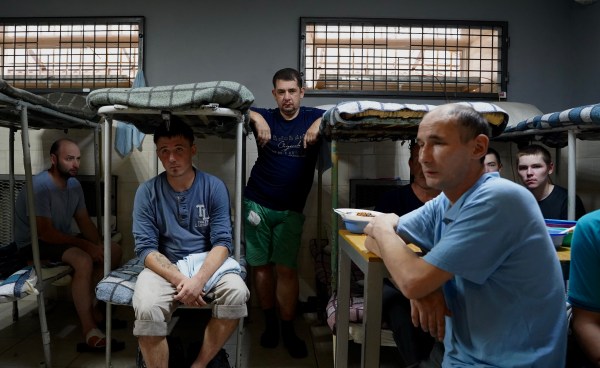
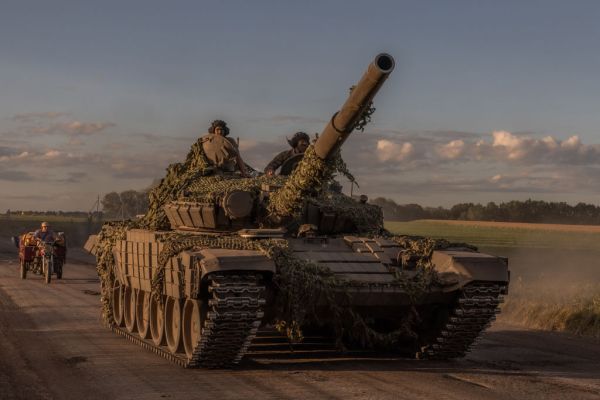

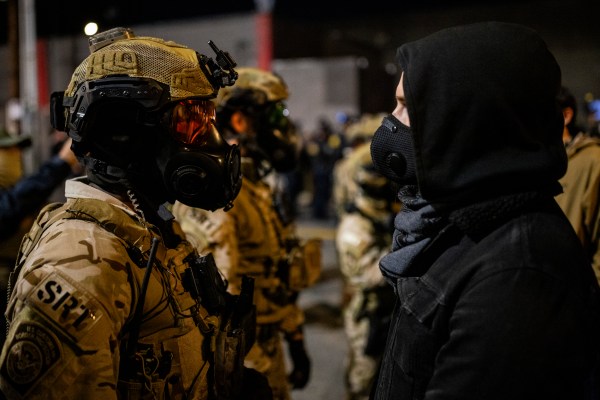
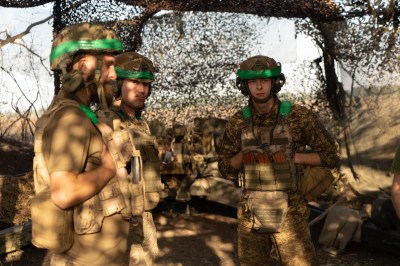
Please note that we at The Dispatch hold ourselves, our work, and our commenters to a higher standard than other places on the internet. We welcome comments that foster genuine debate or discussion—including comments critical of us or our work—but responses that include ad hominem attacks on fellow Dispatch members or are intended to stoke fear and anger may be moderated.
With your membership, you only have the ability to comment on The Morning Dispatch articles. Consider upgrading to join the conversation everywhere.